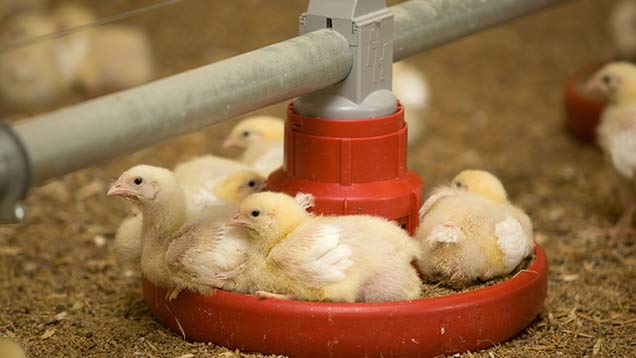Business Clinic: How to prove losses from feed supplied
 © Tim Scrivener
© Tim Scrivener Farmers Weekly’s Business expert Peter Cusick gives advice on what to do if you suspect there is a problem with your supplied feed.
Q: I am a poultry farmer and becoming increasing suspicious that I have a problem with my feed which has caused me financial losses. How do I go about proving my case?
A: An unexplained drop in weight or loss of condition in a flock, fewer or poorer quality eggs are serious causes for concern for any poultry producer. There can be many causes, such as environmental factors or viral infections, but unfortunately we do have experience of feed problems with substantial associated losses.
 Peter Cusick
Peter CusickHead of agriculture and food
Thrings Solicitors
If the feed is the problem then in order for a claim to have any prospect of success it must be shown that the feed was in some way defective.
This is ultimately a matter for experts to determine upon consideration of the formulation and through laboratory analysis.
The key issue is whether the nutritional (and ingredient) levels which the feed should contain, are achieved as a result of the production process. Contamination is possible but, in our experience, is unlikely.
See also: Business clinic: RPA inspection penalties – should I appeal?
Too often, however, although the feed may be defective it can be difficult to prove that this is the cause of the flock’s problems.
If it can be established that the feed was defective then the feed supplier may have to pay compensation for losses suffered subject to the terms of the feed contract and the usual rules on mitigating losses, that is to say, the person suffering the loss must take reasonable steps to minimise their loss.
Here are some practical points to consider:
- It is likely that the deal to buy the feed will be done on the seller’s terms and conditions, which are likely to include exclusion or limitation of liability clauses. You will need advice on whether those are enforceable. Consider too your supply contract – if a problem has now arisen with your flock, what are your obligations to the purchaser and have you got contingency plans to meet that eventuality?
- Keep copies of all documents provided by the feed company, including details of formulations and delivery notes.
- As noted above, proving the feed is defective can only be established on analysis therefore it is essential that samples from each load are routinely kept and safely stored (importantly in the correct conditions).
- Veterinary advice will in all likelihood be sought as soon as there are signs of a problem and your vet can discount viral or other infections as the case may be and provide a letter or statement if required in due course.
- Flock health records can be useful to compare any drop in production during the problem period with another trouble-free period. If sister flock information is available this may also be helpful and can be used to disprove allegations of poor management.
- If a problem does arise, keep a diary of key events including conversations with the feed company – make a note during or as soon as possible after those conversations and if any concessions are made confirm them in writing in a letter. Such information is invaluable if the matter is being considered several weeks or even months down the line.
- Check your insurance cover – is it sufficient to cover your losses in the event that problems arise? Is there legal expenses cover included and up to a level which any claim is realistically going to be?
- Of course, it is also worth mentioning many farmers will have a long term trading relationship with their feed supplier and if you can show the feed was defective, settlement can often be reached by negotiation without having to issue legal proceedings.
The information provided in these articles does not constitute definitive professional advice and is provided for general information purposes only.
Do you have a question for the panel?
Outline the issue in no more than 350 words and Farmers Weekly will put your question to a member of the panel. Please give as much information as possible and send your inquiry to Business Clinic, Farmers Weekly, RBI, Quadrant House, The Quadrant, Sutton, Surrey SM2 5AS. You can also email your questions to fwbusinessclinic@rbi.co.uk or post your question as a comment below this story.
